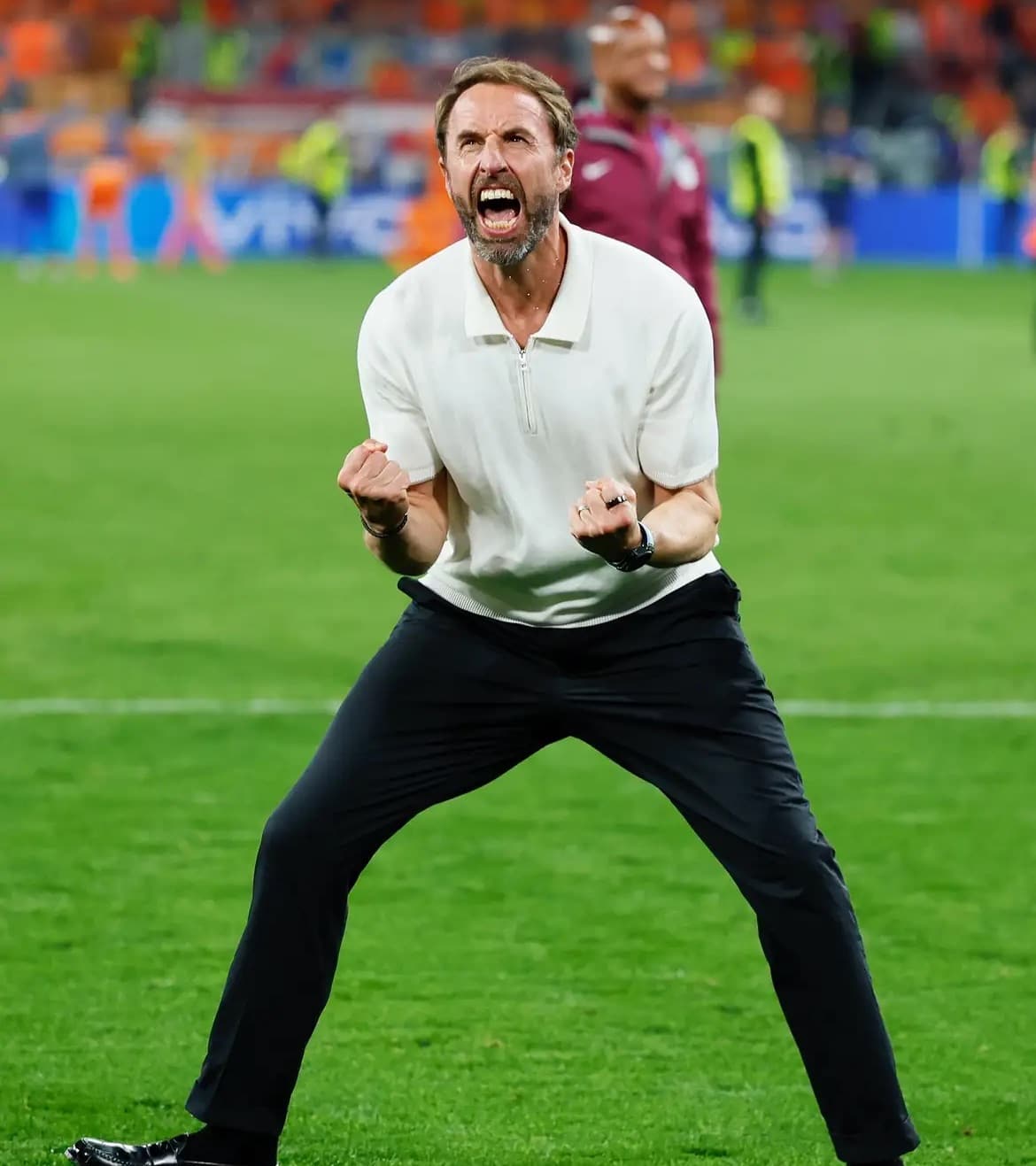By Yusuf Bangura
On paper, Gareth Southgate is the most successful England manager since Alf Ramsey (1963-74), who won the World Cup in 1966—the only international tournament England has won, even though its pundits and fans like to remind the world that it’s the inventor or home of football.
The tired cliche ‘It’s coming home’ was heard loudly again when England qualified for the final by beating Netherlands and equalised against Spain in the 73rd minute in the final.
I also really believed that the gods had answered their 58-year old prayers after that wonderful goal, involving a slick passe from Bukayo Saka to Jude Bellingham, with Cole Palmer finishing off Bellingham’s clinically from a long range.
Momentum was briefly on England’s side. The fan zone where we watched the match with our grandson was buzzing, with a sizeable number of England fans singing the ‘football is coming home’ song, waiving the St George’s Cross, and shouting ‘England’, ‘England’, ‘England’, punctuated by rhythmic claps.
It was lovely to witness. The atmosphere was highly charged—clearly one of the reasons we love and watch football. It’s an entertainment sport.
But Southgate’s football is dull and boring. His team could not sustain the momentum. It wilted just a few minutes after the equaliser, as the Spanish players regained their confidence, resumed their high press and intricate passes, and opened up the England defence with ease. England were put to the sword in the 86th minute. The dream was over. Spanish fans took control of the fan zone with their own songs and flags. *Que Viva España!*
Despite his laudable record of one World Cup semifinal and two Euro finals in eight years as manager, Southgate leaves the stage with one record that will haunt him for life: he’s the only coach to have lost two Euro finals in a row (Euros 2020 and 2024). Spain, Germany and the former Soviet Union are the only other European countries that have qualified for two consecutive Euro finals, but they each won at least one.
How can a manager with the EPL’s best player (Phil Foden), La Liga’s best player (Jude Bellingham), and the Bundesliga’s best player (Harry Kane), for the 2023-24 season, not win Euro 2024?
The betting organisations even made England the hot favourites to win the tournament because of the galaxy of stars at Southgate’s disposal.
The problem may lie in England’s style of play. Southgate’s England, as many commentators have pointed out, is a team of moments—it relies on individual stars to score spectacular goals and win matches by playing pragmatic, defensive and counter-attacking football.
It seems that Southgate’s model is Didier Deschamps, the French coach, who also puts a high premium on pragmatism, defensive football, and magical moments with star players.
As a defensive midfielder, Deschamps imbibed much of Italy’s highly systematised defensive football culture when he played for Juventus in the 1990s. He seems comfortable with winning matches by only one goal. Keeping clean sheets seems preferable to him than scoring lots of goals.
The only French team that has entertained me is the team that won the Euros in 2000. I did not enjoy the football France played when it won the World Cup in 1998.
The difference between Southgate and Deschamps, however, is that Deschamps has been lucky to win a tournament with playing boring football.
Fans would have been up in arms against Deschamps and the French FA may have been dismissed him if he had not won an international tournament. Ugly football can be tolerated if it’s backed by a trophy. But ugly football and a trophy-less cabinet are like oil and water.
However, like Southgate, Deschamps may also have come to the end of the road as France were awful in Euro 2024. The French team needs a new attack-minded coach—probably the legendary Zinedine Zidane.
The only time I felt entertained by England in their seven Euro matches was when they played Netherlands in the semifinals. And that was largely in the first half—they retreated to their conservative, boring style during large parts of the second half.
Southgate’s England team almost always sits back when they score and come alive when they’re chasing a goal from behind.
They were lucky to beat Serbia in the group stage; drew with Denmark and minions Slovenia, also in the group stage; almost got knocked out by Slovakia in the Group of 16 until Bellingham did his magical overhead kick in the last two minutes of the match; and only qualified for the semifinals by beating Switzerland on penalties.
If England had been drawn in the Spain half of the tournament, it would have been knocked out in the Round of 16 or quarter finals.
And the England keeper, Jordan Pickford, is a throwback to England’s ancient tradition of long balls. Any time Pickford stopped a ball he kicked it high up to the Spain half of the field and it was *inshala*—hoping that an England player would get it.
A Spain player got it nine out of ten times—inviting new and sustained pressure from Spain’s highly skillful players. That was one of the reasons why most of the game was played in England’s half.
No serious team plays rugby-type long ball football anymore. Even small nations have keepers who target their own players when they kick the ball.
England has to learn how to initiate attacks from the back. The keeper must have confidence in his defence to collect the ball from him and advance it to the midfielders.
The England FA should now look for a manager that understands the current state and direction of the game, which emphasises possession-based attacking football and a high press. The successful teams in the English Premier League, the Bundesliga and La Liga play that way.
Most of the England players are familiar with that style of play at their clubs, but had in Southgate a manager who was out of step with modern coaching techniques.
Euro 2024 shows that a team can play attractive football and still win an international tournament.
Hopefully, Spain’s victory should bury Deschamps’s boring French style of winning tournaments. Spain may well have saved the beautiful game.




























